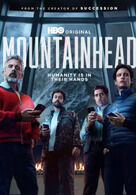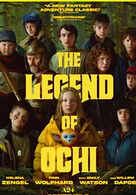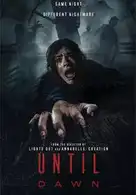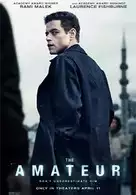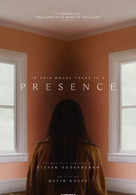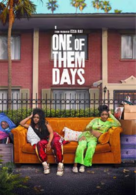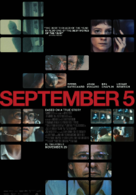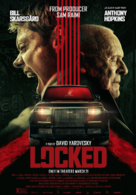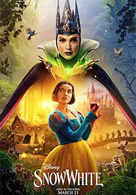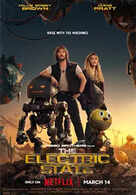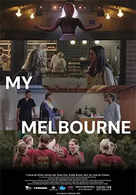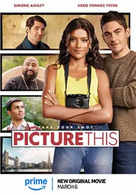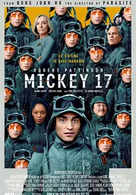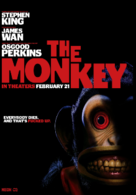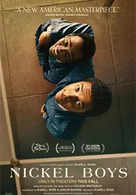Drop Movie Review: An intimate thriller where every ping escalates the stakes
Drop Movie Review: Critics Rating: 3.5 stars, click to give your rating/review,‘Drop’ is a taut thriller in the Hitchcockian tradition that keeps the tension high and viewers hook

Critic's Rating: 3.5/5
Story: Violet, a widowed mother, agrees to a date after five years. But when unsettling messages begin appearing on her phone during the evening, the situation quickly escalates, putting everything she cares about in danger.
Review: ‘Drop’ is a taut thriller in the Hitchcockian tradition that keeps the tension high and viewers hooked throughout its runtime. The film’s tense atmosphere and minimalist setting amplify the sense of urgency, while its visual storytelling mirrors the mounting psychological pressure. Set almost entirely in a plush high-rise restaurant, the smartphone plays a pivotal role—almost like a silent antagonist in the film. With a lean 90-minute runtime, the film steers clear of distractions and neatly delivers everything it sets out to. Though the plot is simple, Christopher Landon’s direction transforms it into a tech-driven, high-stakes experience.
The story follows Violet (Meghann Fahy), a widowed mother encouraged by her sister Jen (Violett Beane) to try dating again after five long years. She agrees to meet Henry (Brandon Sklenar), a photographer, at a fancy high-rise restaurant. What begins as an ordinary evening quickly spirals into a nightmare when Violet receives AirDrop messages from an unknown sender. The messages grow increasingly menacing, reaching a breaking point when Violet views her home’s CCTV feed on her phone and sees a masked intruder threatening to kill her son unless she poisons her date, Henry. With AirDrop messages working only within a short range, everyone nearby becomes a suspect. Violet must think on her feet, stay composed, and find a way to protect her son and Henry.
Meghann Fahy gives a quietly powerful performance as Violet. She convincingly plays a woman juggling charm and terror, keeping her anxiety hidden while navigating the evening’s unfolding horrors. It’s a role that demands emotional control and quick thinking, both of which Fahy delivers naturally. Brandon Sklenar’s Henry is both likable and nuanced—he makes the character feel grounded and emotionally available. He convincingly portrays a man trying to connect, unaware of the crisis unfolding across the table. Their chemistry brings warmth to an otherwise chilling scenario.
To keep the tension simmering, ‘Drop’ smartly casts suspicion on almost every man in the restaurant. It plays into our collective unease with how reliant we are on smartphones and how vulnerable that makes us. The story taps into that paranoia, making the audience question every glance, every face. The on-screen texts help track the urgency of Violet’s situation without overcomplicating the narrative. ‘Drop’ isn’t a perfect film—it sometimes dips into pulp—but it delivers where it counts: with an inventive setup, tight pacing, and a premise that feels all too plausible.
Review: ‘Drop’ is a taut thriller in the Hitchcockian tradition that keeps the tension high and viewers hooked throughout its runtime. The film’s tense atmosphere and minimalist setting amplify the sense of urgency, while its visual storytelling mirrors the mounting psychological pressure. Set almost entirely in a plush high-rise restaurant, the smartphone plays a pivotal role—almost like a silent antagonist in the film. With a lean 90-minute runtime, the film steers clear of distractions and neatly delivers everything it sets out to. Though the plot is simple, Christopher Landon’s direction transforms it into a tech-driven, high-stakes experience.
The story follows Violet (Meghann Fahy), a widowed mother encouraged by her sister Jen (Violett Beane) to try dating again after five long years. She agrees to meet Henry (Brandon Sklenar), a photographer, at a fancy high-rise restaurant. What begins as an ordinary evening quickly spirals into a nightmare when Violet receives AirDrop messages from an unknown sender. The messages grow increasingly menacing, reaching a breaking point when Violet views her home’s CCTV feed on her phone and sees a masked intruder threatening to kill her son unless she poisons her date, Henry. With AirDrop messages working only within a short range, everyone nearby becomes a suspect. Violet must think on her feet, stay composed, and find a way to protect her son and Henry.
Meghann Fahy gives a quietly powerful performance as Violet. She convincingly plays a woman juggling charm and terror, keeping her anxiety hidden while navigating the evening’s unfolding horrors. It’s a role that demands emotional control and quick thinking, both of which Fahy delivers naturally. Brandon Sklenar’s Henry is both likable and nuanced—he makes the character feel grounded and emotionally available. He convincingly portrays a man trying to connect, unaware of the crisis unfolding across the table. Their chemistry brings warmth to an otherwise chilling scenario.
To keep the tension simmering, ‘Drop’ smartly casts suspicion on almost every man in the restaurant. It plays into our collective unease with how reliant we are on smartphones and how vulnerable that makes us. The story taps into that paranoia, making the audience question every glance, every face. The on-screen texts help track the urgency of Violet’s situation without overcomplicating the narrative. ‘Drop’ isn’t a perfect film—it sometimes dips into pulp—but it delivers where it counts: with an inventive setup, tight pacing, and a premise that feels all too plausible.

